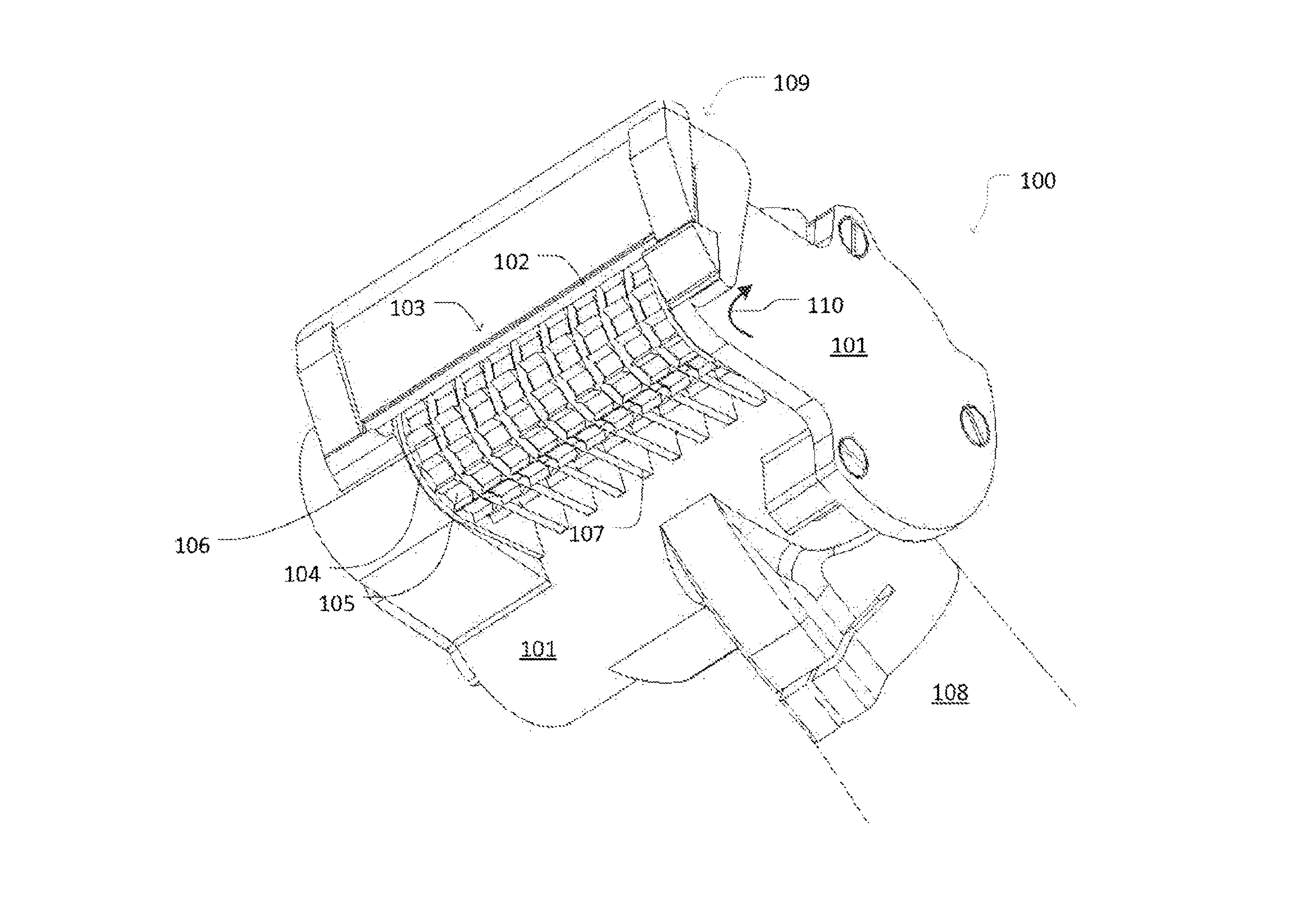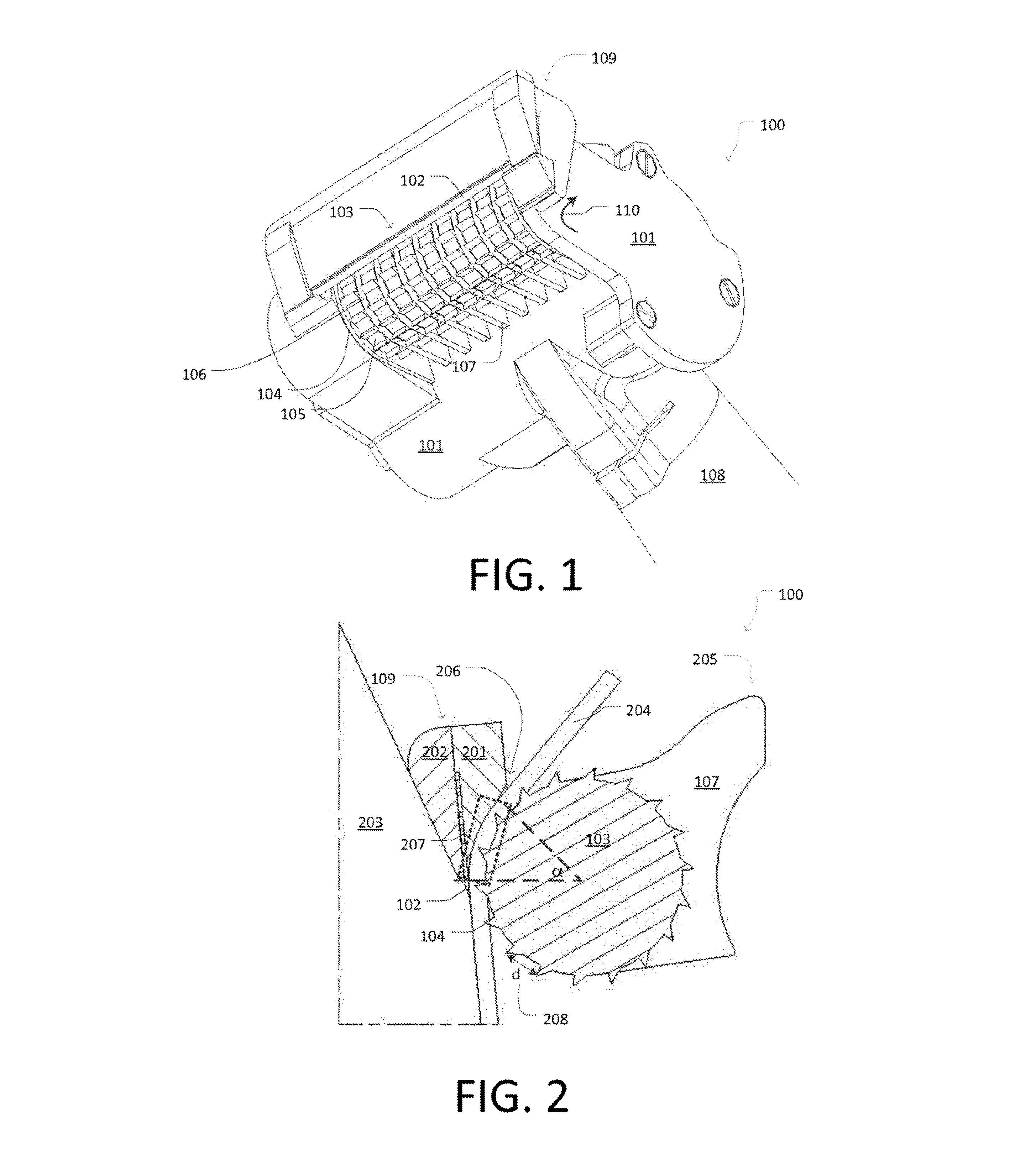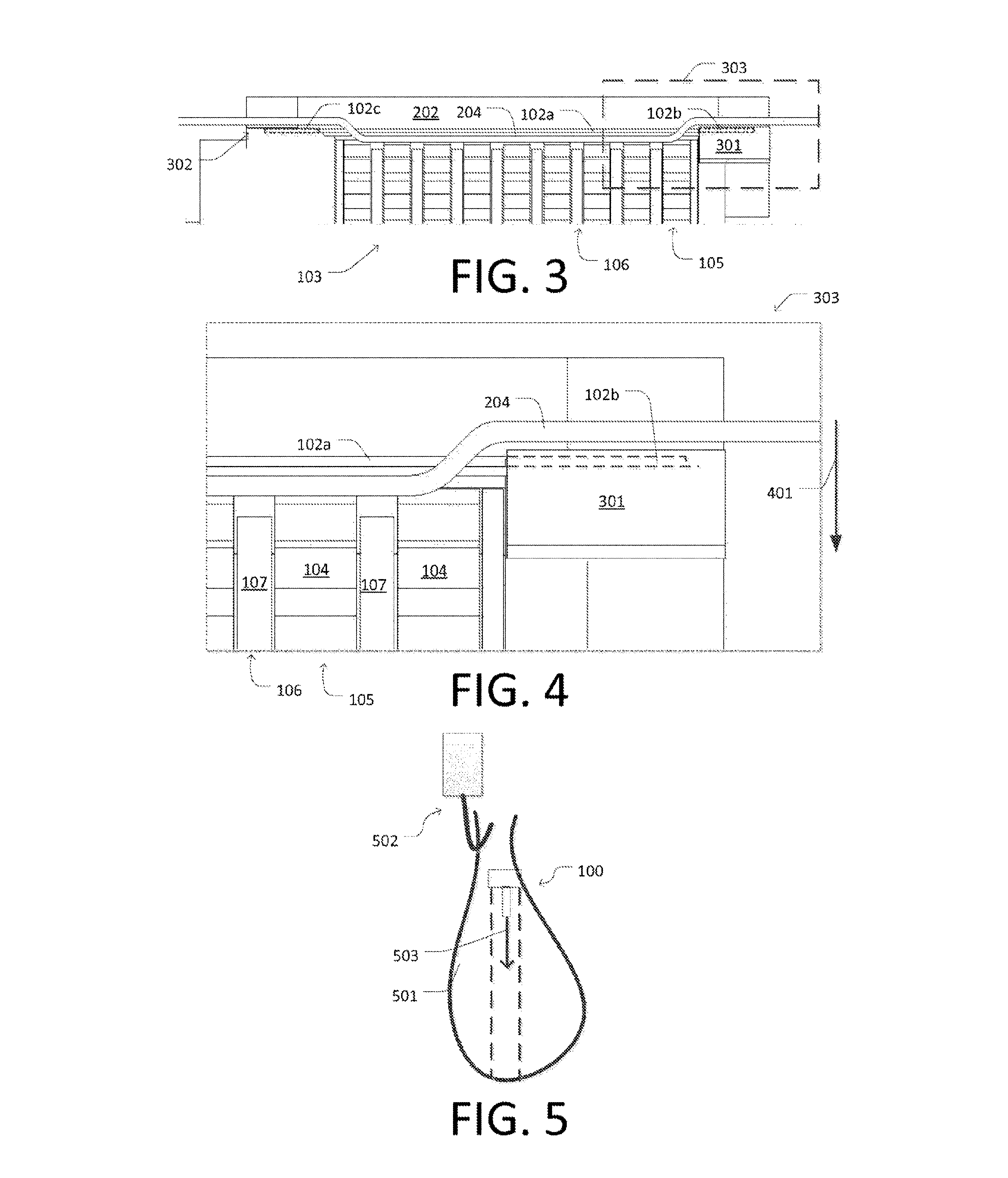Skinning device for removing skin from an animal carcass
a technology for removing skin and animal carcasses, which is applied in the field of skinning devices, can solve the problems of increasing the risk of operator injuries, reducing the lifetime of the motor running the skinner, and blocking all subsequent processing steps, so as to reduce friction and reduce power consumption.
- Summary
- Abstract
- Description
- Claims
- Application Information
AI Technical Summary
Benefits of technology
Problems solved by technology
Method used
Image
Examples
Embodiment Construction
[0047]FIG. 1 depicts an embodiment of a skinning device 100 according to the present invention for removing skin from an animal carcass. The skinning device 100 comprises a housing 101, a manipulation arm 108 extending from the housing 101, an elongated cutting blade 102, a motor driven tooth roll 103, a support structure 109 rigidly mounted on the housing 101 and plurality of strippers 107.
[0048]The motor driven tooth roll 103 is mounted on the housing 101 and comprises plurality of tooth wheels 105 arranged in axially spaced apart arrangement such that the space 106 between adjacent tooth wheels 105 has a pre-set distance. The tooth wheels 105 have circumferentially arranged teeth 104 projecting outwardly therefrom towards the rotating clockwise direction of the tooth wheel 103 as indicated by arrow 110 for grabbing the skin of the animal carcass with the circumferentially arranged teeth 104 and pull it towards said elongated cutting blade 102.
[0049]FIG. 2 shows a side view of the...
PUM
 Login to View More
Login to View More Abstract
Description
Claims
Application Information
 Login to View More
Login to View More - R&D
- Intellectual Property
- Life Sciences
- Materials
- Tech Scout
- Unparalleled Data Quality
- Higher Quality Content
- 60% Fewer Hallucinations
Browse by: Latest US Patents, China's latest patents, Technical Efficacy Thesaurus, Application Domain, Technology Topic, Popular Technical Reports.
© 2025 PatSnap. All rights reserved.Legal|Privacy policy|Modern Slavery Act Transparency Statement|Sitemap|About US| Contact US: help@patsnap.com



